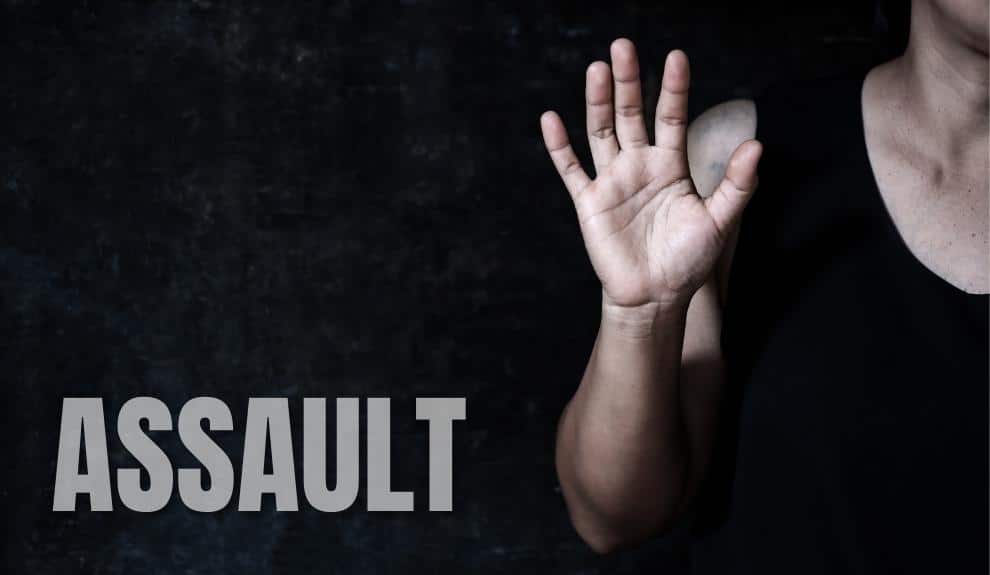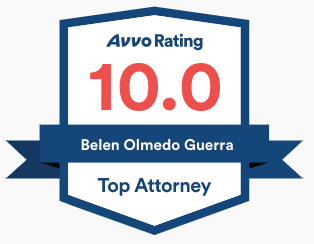Assault Lawyers in Phoenix, AZ
We Defend Those Accused of Every Type of Crime
Home » Assault
PRACTICE AREAS
Phoenix Assault Defense Lawyer
Professional & Experienced Lawyer – Available 24/7

What is Assault?
What many people do not know is that you don’t have to physically injure someone to receive an assault charge. Under Arizona law, the mere threat of injury is criminalized and may warrant a charge of assault, meaning it does not require actual physical harm to occur. Assault is generally a misdemeanor, but depending on whether there are aggravating factors involved, it may be charged as a felony in some cases.What is the Difference Between Assault and Battery?
As criminal defense lawyers, we are far too often asked about the difference between assault and battery in Arizona. Every state sets its own laws governing the crime of assault, so the answer is not always black and white. For instance, what Arizona classifies simply as “assault” may actually be classified as “attempted battery” or “simple assault” in other states. Battery charges often entail the physical act of injuring someone rather than the mere threat. There are no battery charges included in the criminal code of Arizona. What is generally considered battery in other states, Arizona refers to simply as assault.
Assault Charges in Arizona
As mentioned before, the crime of assault can include both the act of harming another person or creating a reasonable fear of impending harm. The criminal charge of assault can be found in the Arizona Revised Statutes § 13-1203. The exact definition is as follows:
ARS 13-1203
A person commits assault by:
- Intentionally, knowingly or recklessly causing any physical injury to another person; or
- Intentionally placing another person in reasonable apprehension of imminent physical injury; or
- Knowingly touching another person with the intent to injure, insult or provoke such person.
Assault charges in Arizona may fall into one of three categories, all of which are misdemeanors. These categories include Class 1, Class 2, and Class 3 and are determined by the severity of the crime. The classifications are as follows:
- Class 3 misdemeanor assault requires the defendant to have touched another person with the intent to injure, insult, or provoke them, but does not require the victim to have received any physical injuries.
- Class 2 misdemeanor assault requires that the defendant intentionally placed in another individual the reasonable fear of impending physical harm or injury.
- Class 1 misdemeanor assault is the most serious of the three classes. Class 1 assault requires that the defendant intentionally, recklessly, or knowingly caused physical injury.
Aggravated Assault Charges in Arizona
The crime of aggravated assault in Arizona is much more complex and is contingent on certain factors that elevate the charge from one of simple assault. Whereas a general charge of assault is a misdemeanor, an aggravated assault charge is a felony in Arizona. The definition of felony aggravated assault can be found in ARS § 13-1204. We’ll provide a summary below:
ARS 13-1204
A person commits aggravated assault if they commit assault as prescribed by § 13-1203 and under any of the following circumstances:
- Serious physical injury results;
- A deadly weapon or dangerous instrument is used in the assault;
- Temporary but substantial disfigurement, loss or impairment of a bodily organ, or a fracture of any body part results;
- The victim is restrained and inable to resist or otherwise has difficulty resisting;
- The perpetrator enters a private residence in order to commit the assault;
- The perpetrator is 18 years of age or older and commits the assault on a minor below the age of 15;
- There is an order of protection issued against the perpetrator;
- The victim is a police, firefighter, paramedic, teacher, healthcare practitioner, etc;
- The perpetrator takes or attempts to take control of a police officer’s firearm or weapon;
- The perpetrator is imprisoned or detained and commits assault against an officer, guard, etc;
- The perpetrator uses a simulated deadly weapon.
An aggravated assault charge may result in anywhere from a Class 6 to a Class 2 felony, depending on certain factors of the case. Assault with a deadly weapon, for instance, is typically a Class 3 felony, as is assault with any dangerous instrument and assault that causes serious injury.

ARS Resisting Arrest
In many cases, the crime of assault may be charged in conjunction with a similar offense occurring from the same incident. This is why, in other states, you often see an “assault and battery case” rather than simply an “assault case.” In Arizona, a charge our Phoenix assault lawyers often see following assault is that of resisting arrest.
It is much easier than you might think to receive criminal charges for resisting arrest. Even if your arrest did not have legal justification by the police, the courts may still find you guilty of resisting arrest. You may think that these charges require you to struggle significantly or use physical force during the arrest. However, simply making your body go limp or stiffening up actually qualifies as resisting arrest in the state of Arizona.
ARS 13-2508
Under ARS 13-2508, someone who resists arrest intentionally prevents or attempts to prevent a police officer from performing an arrest by:
- Using or threatening the use of physical force against a police officer;
- Creating a significant risk of causing physical harm to an officer;
- Demonstrating “passive resistance,” which is a nonviolent physical act or failure to act which intends to interfere with the arrest in some way.
When force or threatened force is used to resist arrest, it is a Class 6 felony. The use of passive resistance, on the other hand, is a Class 1 misdemeanor.
Penalties for Assault Conviction in Arizona
Violent crimes are prosecuted harshly in Arizona, and often carry severe penalties such as lengthy jail time, probation, large fines, and more. Depending on the severity of the crime, as well as other circumstances, the charge may be broken down into different classes. Misdemeanor assaults may be categorized as either a Class 1, Class 2, or Class 3 misdemeanor, while felony assaults may fall into classes 2, 3, 4, 5, or 6.
Below, our Phoenix assault defense lawyers will break down the presumptive penalties for the different classes of a criminal conviction for assault and aggravated assault as well as that of resisting arrest.
- Class 3 Misdemeanor: Up to 30 days in jail, 1 year of probation, community service, anger management courses, victim restitution, and up to $500 in fines.
- Class 2 Misdemeanor: Up to 4 months in jail, 2 years of probation, community service, anger management courses, victim restitution, and up to $750 in fines.
- Class 1 Misdemeanor: Up to 6 months in jail, 3 years of probation, community service, anger management courses, victim restitution, and up to $2,500 in fines
- Class 6 Felony: 18 months to 3 years imprisonment
- Class 5 Felony: 2 to 4 years imprisonment
- Class 4 Felony: 4 to 8 years imprisonment
- Class 3 Felony: 5 to 15 years imprisonment
- Class 2 Felony: 7 to 21 years imprisonment
For a more comprehensive view of Arizona’s sentencing guidelines, take a look at our Arizona Felony Sentencing Chart blog post.

Why Do I Need a Phoenix Assault Lawyer?
It is crucial for anyone who may be facing a criminal case for assault or any other criminal legal matter to obtain the help of an experienced criminal defense lawyer. The criminal justice system is often extremely complex and can be nearly impossible for someone to navigate on their own. A qualified Phoenix assault attorney has the legal knowledge and background necessary to protect you and your rights in a court of law while working to obtain the most favorable outcome for your case.
When you obtain a formal attorney-client relationship with the Phoenix criminal attorneys at Belén Law Firm, we will discuss the details of the alleged incident in great depth before getting straight to work on building and strengthening your case. To prove any degree of assault, the prosecution must show that the defendant, beyond a reasonable doubt, intentionally, knowingly, or recklessly (1) caused physical injury to the alleged victim, (2) placed the alleged victim in a position where they had a reasonable fear of imminent physical harm, or (3) touched the alleged victim with the intent to injure, offend, or provoke them.
Our job as attorneys is to make sure these facts cannot be proven. If the evidence is stacked against you, we will adjust our strategy to make sure you avoid the maximum penalty and work to mitigate the consequences of a conviction. For example, we may be able to negotiate mandatory counseling instead of jail time.
When you hire a team of experienced Arizona criminal defense lawyers like those at Belén Law Firm, you have your best chance of obtaining the best resolution possible for your case. If you have any more questions or concerns about hiring an attorney for your assault charges, please contact us today and schedule your free consultation.
What Are Some Defenses to Assault Charges?
Depending on the circumstances of your case, your attorney will use any relevant defenses against assault accusations. By analyzing the evidence, questioning all witnesses, and disputing the state’s case against you, our team of dedicated Phoenix criminal attorneys at Belén Law Firm will work aggressively to have your case dismissed, obtain an acquittal, and/or mitigate your potential consequences.
Possible defenses include, but are not limited to, the following:
- Self-defense. Let’s say someone strikes you and you defend yourself. In most cases, the defendant does not deserve to go to prison if they happen to strike back in defense of themselves. This is considered self-defense and is a viable criminal defense strategy.
- Protection of another individual or personal property. Just as defending yourself is a viable defense claim, so is defending another person or personal property from an attacker.
- Lack of evidence. If the prosecution lacks sufficient evidence to formulate a strong case against you, your attorney will challenge the evidence provided and question anything that doesn’t add up.
- You were not the main perpetrator. In instances of a group altercation, police might deal out assault/battery charges to anyone present at the time of the incident. However, these are fact-centric charges, meaning a good Phoenix assault attorney may be able to prove that you did not commit the offense you have been charged with despite being present at the time of its occurrence.
- Alibi. If it can be proven that you were not present during the alleged event and that you were not involved in any violent crime in Arizona, the evidence against you can be significantly weakened. Other people who can attest to the fact that you were with them when the supposed incident occurred may be able to serve as your alibi.

Free Consultation With Arizona Assault Charges Lawyer
It is important to remember that because assault is considered a violent crime in Arizona, it cannot be expunged after the fact. If you are facing assault charges, don’t let your case spiral out of control before it’s too late. Get an experienced Phoenix assault lawyer to help craft your defense as soon as possible.
At Belén Law Firm, Belén Olmedo Guerra and her dedicated team of Phoenix criminal attorneys are prepared to take on your case and defend you against your Arizona assault charges. We are also skilled at handling a number of other legal issues in related practice areas, including AZ domestic violence charges, sexual assault charges, homicide charges, and more.
We proudly offer clients a free initial consultation and 24/7 legal advice, so contact us today to discuss your case and your legal options moving forward. You can reach us by calling our Phoenix office at 602-715-0908 or by completing the online intake form located below.
Set Up Your Free Consultation
What Our Clients Say



















